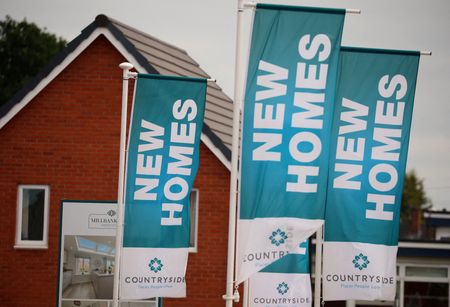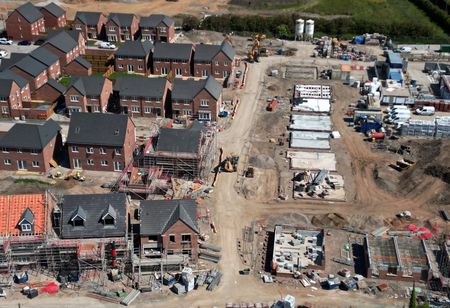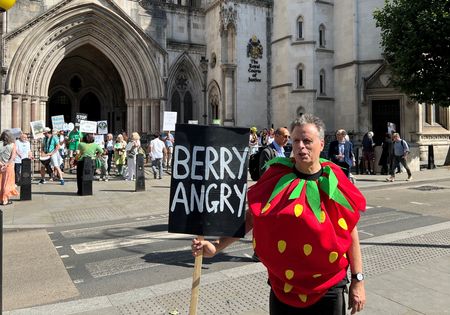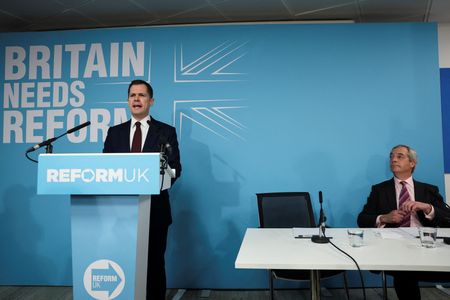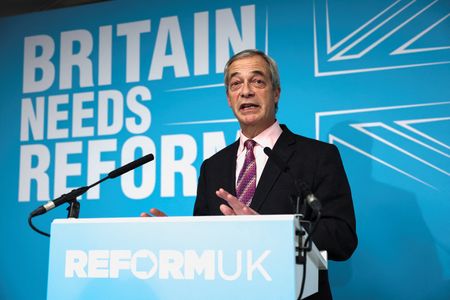By Alistair Smout and Suban Abdulla
LONDON (Reuters) -Britain’s new government on Tuesday set out mandatory housing targets for councils in England with a view to delivering 1.5 million more homes before the next election, aided by an overhaul of the planning system.
New Prime Minister Keir Starmer has made reforms to planning a key plank of his plans to reinvigorate Britain’s growth after a Labour election victory on July 4, and his government has said the country needs to build more homes.
Deputy Prime Minister Angela Rayner said the government would aim for 370,000 new houses to be built each year, up from the current target of 300,000, as she outlined plans she acknowledged would be controversial but said were necessary.
“These are the right reforms for the decade of renewal the country so desperately needs, and we will not be deterred by those who seek to stand in the way of our country’s future,” Rayner told parliament.
House builders, infrastructure groups and investors have long complained that planning laws have prevented them from building, with local communities often able to tie projects up in reviews and legal challenges.
Rayner said there would be an eight-week consultation on the National Planning Policy Framework, with a view to publishing revisions before the end of the year, to speed up the policy changes.
Building in Britain has been constrained by the “green belt”, land that limits the expansion of towns and cities and which made up around 13% of the total land area in England in March, 2023.
Polls show Britons are opposed to building across the land and Labour has proposed a new category of “grey belt” – lower quality parts of the green belt, near existing developments or roads, as well as old petrol stations and car parks.
The government has also restored mandatory house-building targets for local authorities and said that local people will be stopped from blocking new developments, meaning they would only be able to shape how, not if, projects are built.
DOUBTS PERSIST
However industry experts have questioned whether the policies will be enough, asking if local planning authorities will work with the government to quickly approve new projects.
“We need a ‘robust’ approach from the government to tackle local authorities dragging their heels on implementing new housing rules and clamping down on the ability of residents to block housing developments,” said Graham Prothero, CEO of low-cost homebuilder MJ Gleeson.
As well as building new houses – Rayner said less than 200,000 homes were set to be built this year – the government is also trying to make it easier to build key infrastructure including onshore wind and solar projects.
Pro-growth campaign group Britain Remade said “breaking the taboo on the green belt is brave and necessary”.
But the government could still face a challenge from environmentalists, especially if it seeks a wide definition of grey belt.
(Additional reporting by Aby Jose Koilparambil in Bengaluru; Editing by Sharon Singleton)

